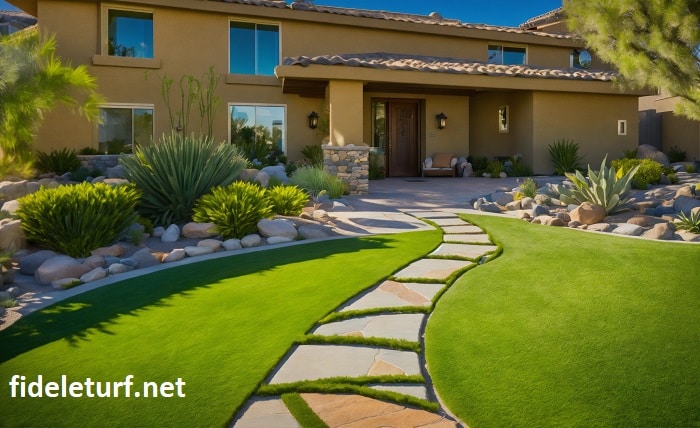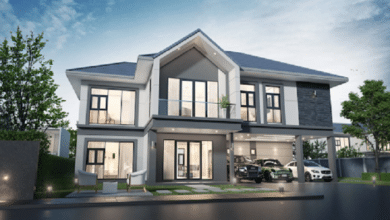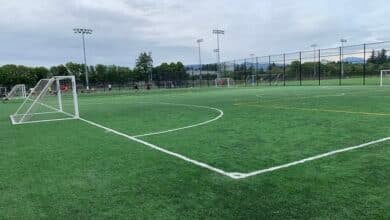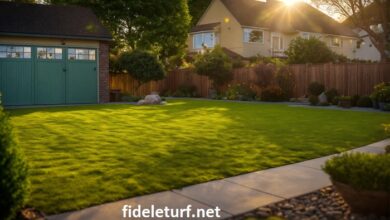Mini Turf: The Ultimate Guide to Small-Scale Turf Solutions

Mini turf is rapidly gaining popularity as a versatile and practical solution for small-scale landscaping needs. Ideal for compact gardens, balcony spaces, and small playgrounds, mini turf offers a stylish and low-maintenance alternative to traditional grass. Whether you’re a homeowner looking to enhance your garden or a business seeking a functional outdoor space, mini turf can transform your area into a lush, green oasis. This blog post will explore the benefits, installation, and maintenance of mini turf, providing you with all the information needed to make the most of this innovative solution.
1. What is Mini Turf?
Mini turf refers to small-scale artificial grass designed for use in compact spaces. It is often used in residential gardens, balcony areas, and small playgrounds. Mini turf mimics the appearance of natural grass while offering durability and low maintenance. The compact nature of mini turf makes it ideal for areas where traditional grass may not thrive or be practical.
2. Benefits of Using Mini Turf
The advantages of mini turf are numerous. One major benefit is its low maintenance requirements, which eliminate the need for regular mowing, watering, and fertilizing. Additionally, mini turf provides a consistently green and lush appearance year-round, regardless of weather conditions. It is also durable, making it suitable for high-traffic areas and outdoor activities. The ease of installation and versatility of mini turf make it an attractive option for various applications.
3. Choosing the Right Mini Turf for Your Space
Selecting the right mini turf involves considering factors such as pile height, density, and color. Pile height refers to the length of the grass fibers, with options ranging from short to medium lengths. Higher density turf provides a fuller appearance and increased durability. The color of the mini turf should complement your existing outdoor decor. Choosing the right mini turf ensures that it meets your aesthetic and functional needs.
4. Installation Tips for Mini Turf
Proper installation is crucial for achieving the best results with mini turf. Start by preparing the ground, ensuring it is level and free of debris. A weed barrier can be laid down to prevent weed growth. Next, roll out the mini turf and trim it to fit your space. Use adhesive or turf nails to secure the edges and seams. Finally, brush the fibers to lift them and achieve a natural look. Following these installation tips will help you create a seamless and professional appearance.
5. Maintenance of Mini Turf
One of the main benefits of mini turf is its low maintenance requirements. Regular maintenance involves brushing the fibers to keep them upright and remove debris. Occasional rinsing with water helps to clean the surface and maintain its appearance. If needed, use a mild detergent to address any stubborn stains. Overall, mini turf requires minimal upkeep compared to natural grass, making it a convenient option for busy homeowners.
6. Mini Turf for Small Gardens
Mini turf is an excellent choice for small gardens where space is limited. It can transform a compact area into a green retreat, providing a fresh and inviting environment. Whether used as a ground cover or in combination with other landscaping features, mini turf enhances the aesthetic appeal of small gardens. Its durability ensures that it can withstand foot traffic and outdoor elements, making it a practical solution for small-scale landscaping.
7. Using Mini Turf on Balconies and Rooftops
Mini turf is also well-suited for balconies and rooftops, where traditional grass may not be feasible. It creates a comfortable and attractive surface for outdoor lounging and dining. Installing mini turf on these elevated spaces provides a touch of greenery and a natural feel, enhancing the overall ambiance. Additionally, mini turf can help to insulate and protect surfaces from extreme temperatures, contributing to a more pleasant outdoor experience.
8. Mini Turf for Play Areas
For families with children, mini turf offers a safe and clean surface for play areas. It provides a soft landing and reduces the risk of injuries compared to hard surfaces. Mini turf is also easy to clean and maintain, making it ideal for active play. Its durability ensures that it can withstand heavy use and various weather conditions, making it a reliable choice for both residential and commercial play areas.
9. Cost Considerations for Mini Turf
The cost of mini turf varies depending on factors such as quality, size, and installation complexity. While the initial investment may be higher compared to natural grass, the long-term savings on maintenance and water usage can offset the cost. Additionally, mini turf often has a longer lifespan, providing value over time. It’s important to consider both the upfront costs and potential savings when evaluating mini turf for your space.
10. The Future of Mini Turf
The future of mini turf looks promising, with ongoing advancements in technology and design. Innovations such as improved materials and manufacturing processes are enhancing the durability and appearance of mini turf. Additionally, eco-friendly options and sustainable practices are becoming more prevalent, aligning with growing environmental concerns. As mini turf continues to evolve, it will offer even more benefits and applications for small-scale landscaping solutions.
Conclusion
Mini turf offers a practical and stylish solution for transforming small spaces into green, inviting areas. With its low maintenance requirements, durability, and versatility, mini turf is an excellent choice for gardens, balconies, rooftops, and play areas. By understanding the benefits, installation process, and maintenance of mini turf, you can make an informed decision and enjoy a beautiful, green space year-round. Whether you’re looking to enhance your home or create a functional outdoor area, mini turf provides a reliable and attractive option.
FAQ
1. What is mini turf?
Mini turf is small-scale artificial grass designed for use in compact spaces. It mimics the appearance of natural grass and offers low maintenance and durability for small gardens, balconies, rooftops, and play areas.
2. What are the benefits of using mini turf?
Mini turf offers several benefits, including low maintenance requirements, consistent appearance year-round, durability, and ease of installation. It eliminates the need for regular mowing, watering, and fertilizing while providing a lush, green surface.
3. How do I choose the right mini turf for my space?
To choose the right mini turf, consider factors such as pile height, density, and color. Pile height affects the length of the grass fibers, while density impacts the turf’s fullness and durability. Select a color that complements your existing decor.
4. What is involved in the installation of mini turf?
Installation involves preparing the ground, laying a weed barrier, rolling out and trimming the mini turf, and securing the edges with adhesive or turf nails. Finally, brush the fibers to achieve a natural look. Proper installation ensures a seamless and professional appearance.
5. What maintenance is required for mini turf?
Mini turf requires minimal maintenance. Regularly brush the fibers to keep them upright and remove debris. Occasionally rinse with water and use a mild detergent for stubborn stains if needed. Overall, mini turf is easy to maintain compared to natural grass.




